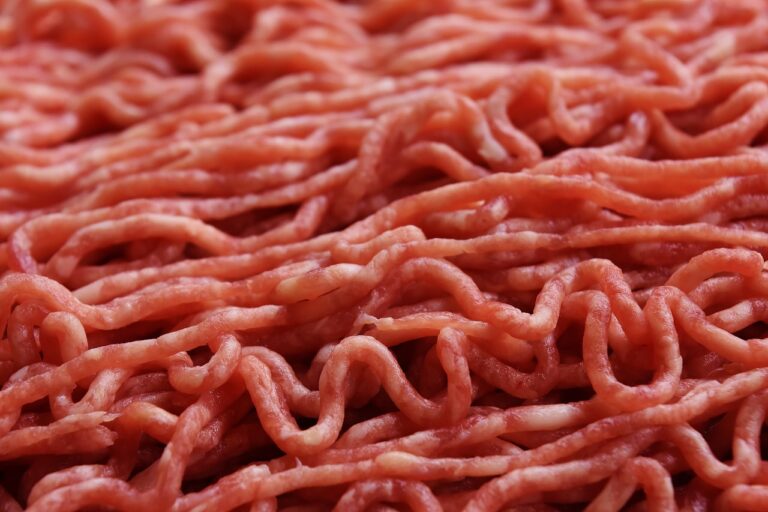The Impact of Food Additives on Food Stability
sky.247, diamondexch9 com, tiger exchange vip: It is no secret that food additives play a crucial role in today’s food industry. These substances are used to enhance flavor, improve texture, extend shelf life, and prevent spoilage. However, the impact of food additives on food stability is a topic that often goes unnoticed. In this article, we will explore the effects of food additives on the stability of food products.
Understanding Food Stability
Food stability refers to the ability of a food product to maintain its quality attributes over time. This includes factors such as texture, color, flavor, and overall appearance. The stability of food products is influenced by various factors, including the formulation of the product, processing conditions, packaging, storage, and the presence of additives.
The Role of Food Additives
Food additives are substances added to food products to improve their quality and safety. These substances can be natural or synthetic and serve various purposes, such as preserving freshness, enhancing flavor, improving texture, and extending shelf life. While food additives are generally considered safe for consumption, their impact on food stability is a topic of ongoing research and debate.
Effects of Food Additives on Food Stability
1. Preservation: One of the primary functions of food additives is to preserve the freshness and quality of food products. Additives such as antioxidants, preservatives, and antimicrobial agents help prevent spoilage by inhibiting the growth of bacteria, yeast, and mold. These additives play a crucial role in extending the shelf life of perishable goods and maintaining food stability.
2. Texture: Food additives also play a significant role in improving the texture of food products. Emulsifiers, stabilizers, thickeners, and gelling agents are commonly used to enhance the texture and consistency of foods such as sauces, dressings, and baked goods. These additives help maintain the desired texture of food products over time, contributing to their stability.
3. Flavor: Flavor enhancers, sweeteners, and other food additives are used to enhance the taste of food products. These additives help create a more appealing flavor profile, making the food more enjoyable to consume. By enhancing the flavor of food products, additives contribute to their overall stability by increasing consumer acceptance and reducing the risk of spoilage due to undesirable taste.
4. Color: Food additives are also used to improve the color and appearance of food products. Color additives such as dyes and pigments are commonly used to enhance the visual appeal of foods and make them more attractive to consumers. By maintaining the desired color and appearance of food products, additives help ensure their stability on the market and prolong their shelf life.
5. Nutritional Value: Some food additives are used to fortify food products with essential vitamins, minerals, and nutrients. These additives help improve the nutritional value of foods and enhance their health benefits. By increasing the nutritional content of food products, additives contribute to their stability by meeting consumer demand for healthier food options.
6. Allergenicity: Despite their benefits, some food additives can have adverse effects on food stability. For example, allergenic additives can trigger allergic reactions in susceptible individuals, leading to safety concerns and product recalls. It is essential for food manufacturers to be transparent about the presence of allergenic additives in their products and provide clear labeling to protect consumers with food allergies.
Overall, food additives play a crucial role in enhancing the stability of food products by preserving freshness, improving texture, enhancing flavor, maintaining color, and fortifying nutritional value. While the impact of food additives on food stability is generally positive, it is essential for food manufacturers to carefully select and use additives to ensure the safety and quality of their products.
FAQs
Q: Are food additives safe to consume?
A: Food additives that are approved for use by regulatory authorities are generally considered safe for consumption. However, it is essential to follow recommended guidelines for the use of additives and monitor any adverse reactions that may occur.
Q: What are some common food additives to look out for?
A: Common food additives include preservatives, antioxidants, emulsifiers, stabilizers, thickeners, sweeteners, color additives, flavor enhancers, and nutritional fortifiers.
Q: How can consumers make informed choices about food additives?
A: Consumers can make informed choices about food additives by reading product labels, researching the additives used in food products, and choosing natural or organic foods whenever possible.
Q: What are the potential risks of consuming food additives?
A: While most food additives are safe for consumption, some additives may have allergenic or adverse effects on certain individuals. It is essential to be aware of any potential risks associated with food additives and consult a healthcare professional if necessary.







